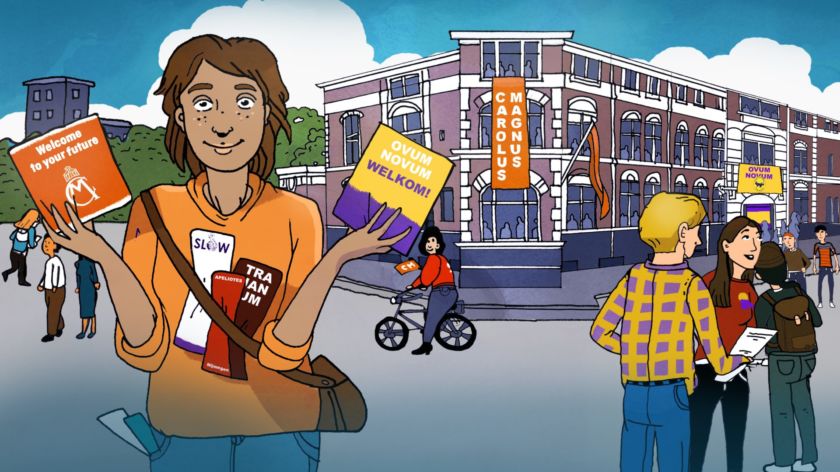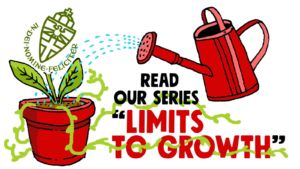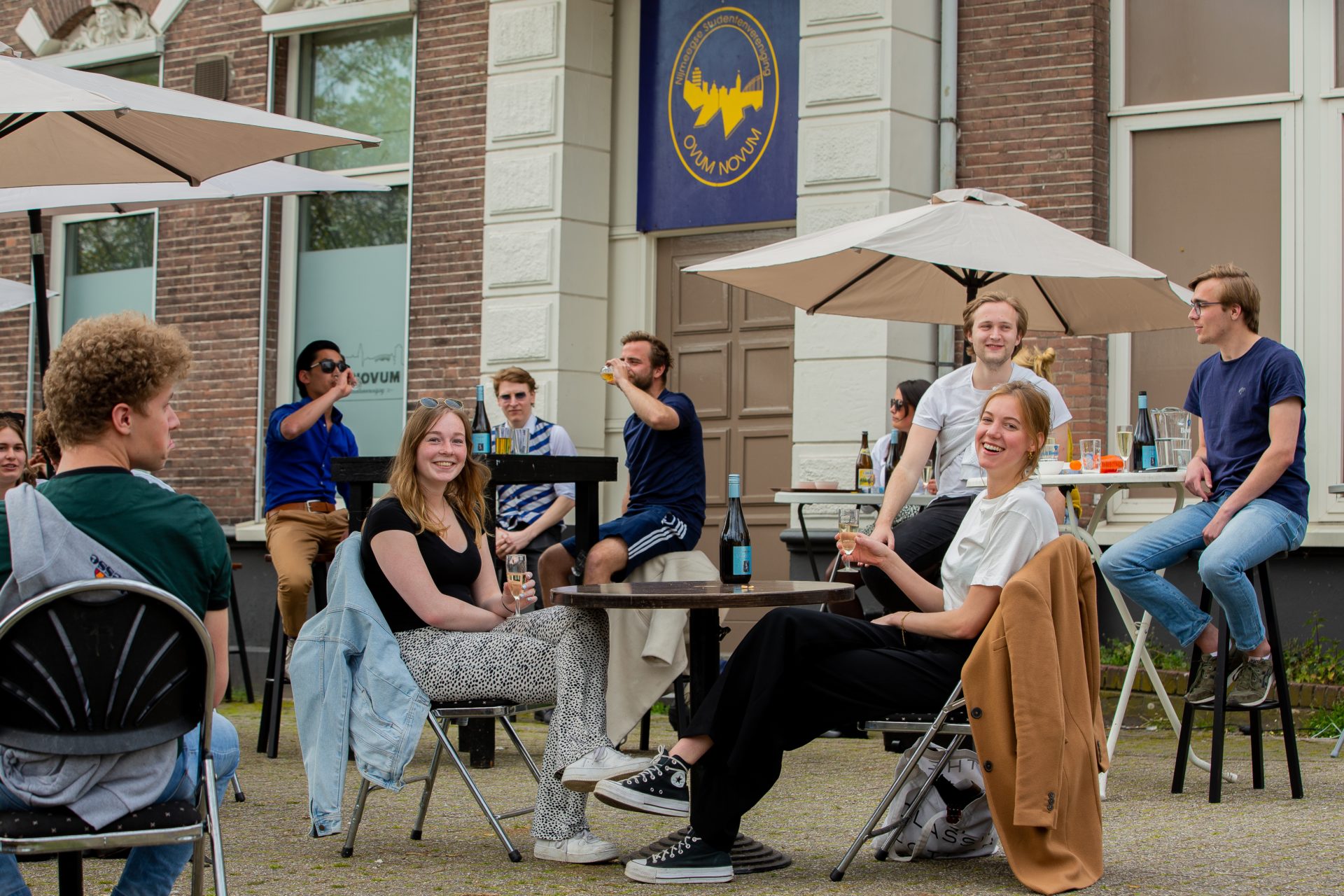Limits to growth (2): It’s perfectly normal to have to wait for months to join an association
-
 Illustration: Ivana Smudja
Illustration: Ivana Smudja
Every year Radboud University grows a little bigger. How do fuller lecture halls impact teaching, student life and the city of Nijmegen? In the Limits to growth series, Vox explores the university’s growing pains. Today, Part 2: association life is becoming more exclusive.
Over the last ten years, the number of students at Radboud University has increased by no less than 35 percent. These students don’t just come to Nijmegen to study. Many also join a sports or social association, or an independent fraternity. But is there still enough room for everyone?
Limits to growth
In the coming weeks, Vox will highlight the steady growth of the university. This is the second article in the series.
1.The growing pains of the university
2. Active student life under pressure
3. Fighting for office space
4. The sports centre is bursting at the seams
5. The explosion of psychology in 2016
6. Is the campus still easily accessible?
7. Lecture halls full of unhappy students
8. Student recruitment without growth ambitions
This question played a central role in a recent Vox survey completed by nineteen associations, including six social associations, eight sports associations, and five independent fraternities.
Member limits
Their answers reveal that association member numbers have grown substantially in the last ten years. This is hardly a surprise, given the university’s general expansion. For example, student association Carolus Magnus has acquired 300 new members, rowing association Phocas has seen their numbers increase from 474 in 2012 to 830 today, and football club FC Kunde has 220 additional members.
Is there still space for further growth? 68.4% of all associations say ‘yes’, while at the same time, 42% have introduced a member limit. These associations only accept a fixed number of students every year. Such limits to the inflow of new members are typical of the last few years: 37.5% of associations introduced a member limit in 2021, and 25% in 2020.
COVID-19
This raises the question of whether the COVID-19 pandemic played a role in this development. After all, aren’t lockdowns and curfews times when the need for social activities is felt most keenly? So did the pandemic draw masses of students into association life?
For social associations, the answer is most certainly ‘yes’, says Anne Meyboom, Chair of the overarching student organisation B.O.S. ‘We believe COVID-19 to be the reason behind our high number of new applications. You see, this increase in interest only became apparent in 2020. These days, everyone is looking for friends and social contacts. Student associations can meet this need: it’s what we do.’
Sports associations did not witness a particular rise in interest since the pandemic, but they struggle with limited opportunities for growth. ‘We have too few field hours at the sports centre to be able to register more teams,’ reports football association FC Kunde, to name one. Hockey association Apeliotes misses an extra field to be able to form more teams. And basketball club Trajanum faces ‘a shortage of coaches and training hours.’ Tennis association Slow and handball club Ha-Stu also report a ‘capacity shortage’.
Waiting list
More than a third of the associations that completed the Vox survey have a waiting list. These lists may contain from zero to 100 students. The majority of associations (42.5%) introduced a waiting list in 2019. New members typically have to wait approximately one year to join. An exception is Apeliotes, where 200 to 300 students have to wait approximately two years for a spot.
‘We want to give everyone an equal opportunity every year to become a member’
Student associations Carolus Magnus and Ovum Novum have consciously chosen not to have a waiting list, says Meyboom: ‘We want to give everyone an equal opportunity every year to become a member. If students only register for the waiting list in their second year, and only become members in their third year, they will have less time to enjoy association life than first-year students. And third-year students tend to have less time for committee work, which is something we consider very important.’
Measures
Simply complaining about the lack of space without taking action is not for Nijmegen associations: 75% report taking measures to increase their capacity. Apeliotes, for example, is talking to the municipality, while FC Kunde has launched a ‘growth committee’. Ovum Novum is even revamping one of their halls into a gathering space to give their sub-associations (year clubs and societies) more space.
‘Problems exist to be solved: we expand and come up with new ideas,’ says Meyboom. ‘But this can’t go on for another five years. We’ll have run out of solutions by then. It’s hard to predict how application numbers will develop in the years to come. But if they continue to grow, we’ll have to make different policy choices, such as restricting open parties to members only.’
Independent disputes
Within student association life, independent disputes are a bit of an odd man out. Unlike the associations, their member numbers have remained fairly stable over the last ten years. Students are still free to join every year, without member limits or waiting lists. ‘But membership works differently in fraternities,’ explains Anne Meyboom from B.O.S. ‘Independent fraternities recruit differently than student associations. A fraternity chooses its members, rather than the other way around. Every year, fraternities look at how many people are leaving, and decide how many new members they want.’
Active member recruitment is also still taking place. 75% of associations report actively recruiting members, especially during Orientation Week. The main reason for this? Brand recognition, say Carolus and Ovum. ‘In Nijmegen, association culture is not as popular as in Leiden or Groningen,’ explains Meyboom. ‘You want to clearly put your mark on the city during Orientation Week, so that students know where to find you.’ Sports clubs also indicate that they still need members for specific teams, such as competition or men’s teams, which is why they continue to advertise.
Advantages
But does an overflowing association life only bring disadvantages? Certainly not, says Meyboom in conclusion: ‘Exclusivity increases our popularity. It allows us to attract lots of great new members, and the higher contribution fees make it possible to organise more large-scale and fun activities. Our motto has always been: The more, the merrier!’





